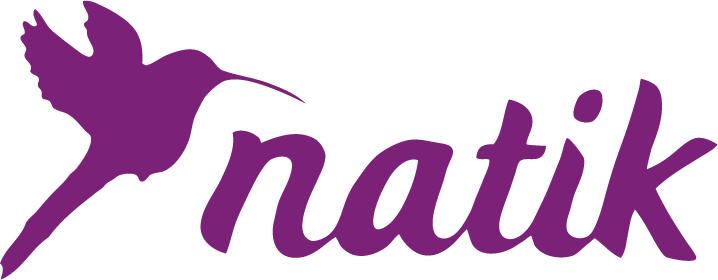
Pueblo a Pueblo: We celebrate with honey
This year, the Santiago Atitlán group, made up of 5 women and 1 man, harvested 2 quintals of honey in their apiary located in a place known as Chuitinamit. According to history, this place was previously inhabited by Tzutuhil ancestors and was the center of the Tzutuhil kingdom.

Ruk’ux Scholarship: Holy week for Ruk’ux.
The cultural activities begin on Saturday when it is customary to see the brothers go to the coast for the fruits. They bring them to town in boxes carried by men to the sound of music On Holy Tuesday the Corozas are brought, which are flowers that have a pleasant smell, and with it the main altar of the church is decorated.

ANADESA: Our meals during holy week.
The brotherhoods are organized to bring fruits that will be hung in the streets of the town. The neighbors are organized to make carpets where the procession will pass. The Catholic church organizes the activities of Holy Thursday; Washing of the feet of the apostles, Good Friday; The crucifixion of Jesus and the procession of the same. Saturday night is the vigil of the resurrection.

Traveling Library: We love reading!
After telling the story to the children of the community, Mrs. Isa made a comparative chart about the stereotypes that exist in the community of Santiago Atitlán. The children commented with their ideas about what they thought and about how their community thinks.They sought to find positive ideas to cultivate inclusion in the community.

Yo’onik Learning Center: We’re celebrating children’s day.
Celebrating and recognizing the children is a very important step, because, in this way, they recognize their rights and the opportunity to celebrate together with the schools and even with their families. That is why we are very excited to share this special day.

Mujeres Sembrando la Vida: Collaborating with Ushum.
For us, it is very important to make these pieces. Not only do we learn a lot throughout the process, but when we see that the pieces look good we are encouraged to make more of similar products.

Ruk’ux Scholarship: International Women’s Day.
For this reason, as women we must always support each other, we must speak out and not be silent, much less allow ourselves to be abused, humiliated, and made to feel that we are little.

Can Donations Reduce Poverty?
First, it’s important to clarify that poverty is a societal construct that is the consequence of generations of complex social-political-economic infrastructures that contribute to and reinforce what we refer to as “poverty”.

Yo’onik Learning Center: This is how we honor women.
On this day, we try to make women and girls aware of their rights. Thus, we orient them and reflect on these issues through different talks. From the time they are children, they must learn that violence is never good.

Natik hosted a study abroad conference.
The exciting news is that experiencing the power of Popular Education gave birth to a new concept for future AAPLAC conferences. One of the planners of the next conference told me: "We talk about decolonizing academic programs abroad and here we have a tool that we can apply to that process! I'm looking forward to integrating Popular Education into the next conference!"

Mujeres Sembrando la Vida: Do you know how we work?
In short, each artisan makes products that they like to make, either individually or as a group, so that they look beautiful and, of course, they are happy to make them!

ANADESA: Participation of women in our projects
Currently, there is a struggle in which the right of women to have a voice and vote in any community assembly is being defended. There is already a change in terms of leadership and active participation in women, both socially, politically and religiously.

Pueblo a Pueblo: Take a look at our garden.
Josefa Ajtujal Cali, 40 years old, says that she used to plant using chemicals and now she understands the importance of making her own organic fertilizer to nourish the soil and have healthy crops that benefit the soil and contribute to the nutrition of the people.

Traveling Library: We had a celebration with grandmothers.
One Wednesday in February I shared a story with the grandmothers, and it was the first story I have shared with them. Previously I had gone with the grandmothers to accompany Isaias, the former librarian, to watch and learn about different forms of storytelling. During my observation I noticed with Isaías the power of books and storytelling in tz'utujil.

Traveling Library: Our new English teacher.
Books that convey emotions make the children connect to and identify with themselves. The higher grades such as sixth and fifth make an effort to write new words and pronounce them also, to enrich their vocabulary.


Natik: The economics of love and language!
It turns out that the majority of human interactions are based on voluntary reciprocity.

ANADESA: This is how we demonstrate our friendship!
Friendship is fundamental for everyone, because it promotes sincerity and empathy for others. I demonstrate friendship in my class through the mutual respect we should have, not because I am a teacher and they are my students, but because we are beings with human dignity and purpose, addressing each other as we like and respecting our limitations.

Yo’onik Learning Center: Our mother tongue.
we encourage the learning of Tsotsil through the teaching of reading and writing. There the children not only learn to speak their mother tongue, but also to never forget that Tsotsil belongs to them and identifies them.

Pueblo a Pueblo: Meet Marza.
Marza Dolores says: "I am very happy to belong to Pueblo a Pueblo, because since I was a little girl they have supported me in my health and now in my education, this year I finish my last year of primary school. My biggest dream is to learn more languages to help me communicate with more people.
